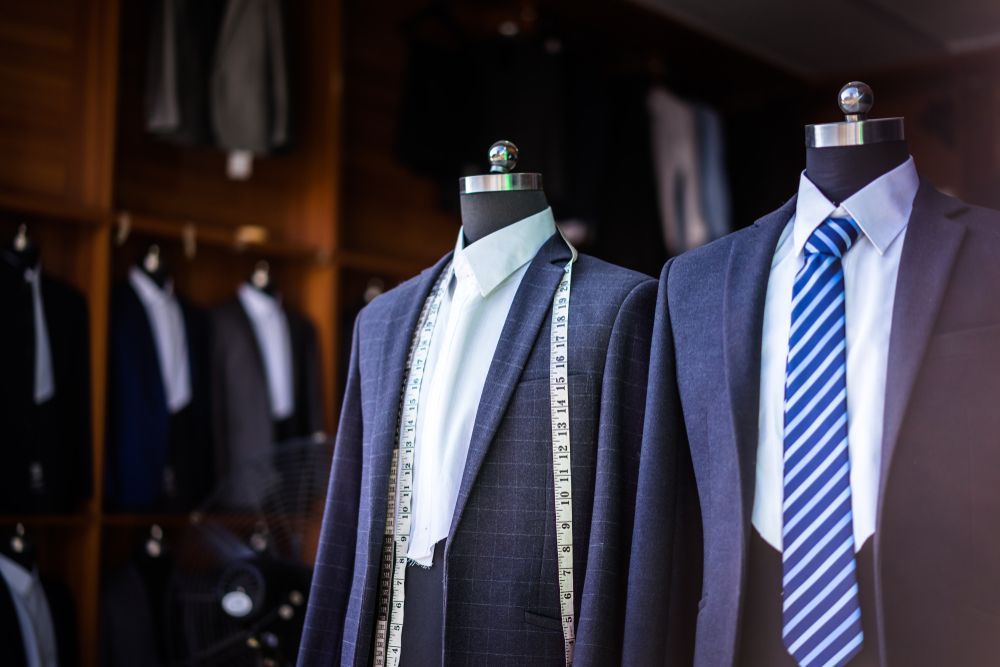What Makes Tailoring Special: 200 Years Of Tradition
The Timeless Tradition of Tailoring: An Artisan Craft for the Ages
We live in an era where fast fashion dominates and disposable clothing has become the norm. Yet, there remains an appreciation for quality, and this leads some to seek out an art and craft that has more than 300 years of heritage behind it: tailoring.
The body content of your post goes here. To edit this text, click on it and delete this default text and start typing your own or paste your own from a different source.Like with any create craft, tailoring is a skill that gets passed down through generations of skilled hands. It represents not just a profession, but a dedication to excellence that transcends time, and it’s something that no machine or factory process, no matter how well designed, can hope to emulate.
A Heritage Spanning Centuries
The tradition of tailoring stretches back hundreds of years, with the earliest known portrait of a tailor dating to 1640 in Italy, captured by the brush of Murillo. In this historical image, we see the essential tools of the trade—scissors, fabric, and measuring implements—tools that remain fundamental to the craft today. This visual testament speaks volumes about the enduring nature of tailoring as both an art form and a practical skill.
What's particularly remarkable about tailoring is how little the core techniques have changed over the centuries since. While modern machinery has been incorporated to save time on certain tasks, the essential methods of measuring, cutting, and constructing garments remain steadfastly traditional. In an era where digital disruption has transformed countless industries beyond recognition, there's something profoundly beautiful about this continuity.
The Language of Measurement
One of the most fascinating aspects of traditional tailoring is its adherence to imperial measurements. For the true artisan tailor, everything is measured in inches, not centimetres as you might assume. This isn't mere stubbornness or resistance to change; it's about preserving the precision and intuition that comes from working within a system perfected over generations.
Master tailors can tell you about the "ten measures to a cut"—the critical measurements that inform how a garment will be shaped to fit an individual's unique physique. These measurements, taken with care and interpreted through years of experience, form the foundation of a well-crafted garment. They represent the tailor's intimate understanding of how fabric drapes on the human form and how subtle adjustments can transform both appearance and comfort.
From Master to Apprentice
Perhaps the most precious element of the tailoring tradition is how knowledge is transmitted. It’s not typically done through textbooks or online courses, but rather, through the ancient practice of apprenticeship. Young tailors learn by watching, by doing, by making mistakes under the watchful eye of their mentors. They inherit not just techniques but philosophies about quality, service, and craftsmanship.
This direct lineage can be traced through generations. In Australia, we see this with tailors who learned their craft from masters who, in turn, learned from legends like Vince Moloney. These connections form an unbroken chain of knowledge stretching back centuries, each link representing years of dedicated practice and refinement.
The Bespoke Experience
Why do tailors go through all this, and then stick to their traditions? Because it allows tailors to provide clothing of a deeply personal nature. Made to measure suits are not just a turn of phrase in this craft – it’s a phrase with real meaning. When a client commissions a bespoke suit or garment, they're not just purchasing clothing. Rather, they're participating in a collaborative creative process. The tailor considers not just the client's measurements but their lifestyle, preferences, posture, and the purpose of the garment.
This level of personalisation creates clothing that does more than just fit well. It also enhances the wearer's presence and confidence. A well-tailored suit or jacket becomes an extension of the wearer's personality, a second skin rather than simply a covering.
Evolution Within Tradition
While the core techniques remain unchanged, tailoring hasn't been entirely static. Fabrics have evolved significantly, becoming finer and more diverse in their properties. Modern tailors have access to materials with performance characteristics their predecessors could only dream of—breathable wools, crease-resistant finishes, and lightweight constructions that maintain structure without bulk.
Similarly, styling has evolved to reflect changing tastes and social contexts. Today's bespoke tailors can create garments that honour traditional craftsmanship while incorporating contemporary aesthetics. These are proof that respecting tradition doesn't mean rejecting innovation.
A Future Worth Preserving
Despite all the conveniences available to us today, artisan tailoring will forever remain valued as a skill that requires true craftmanship. It reminds us that some things are worth preserving not out of nostalgia, but because they represent excellence that cannot be improved upon through mass production or automation.
The future of tailoring lies in the hands of those who recognise its value—both the craftspeople who dedicate themselves to mastering its techniques and the clients who appreciate the difference that true craftsmanship makes. As more consumers grow disillusioned with disposable fashion, there's a growing appreciation for garments made with care, designed to last, and created with the wearer's unique form in mind.












